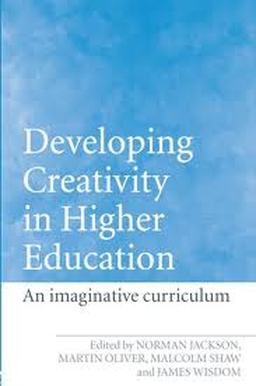International Symposium on
“The Cultivation of Creativity in University Students’”
Macao Polytechnic Institute
The purpose of the symposium is to explore theoretical and practical issues with respect to developing university students’ creativity and disseminate cutting-edge academic research in the area, and promote the further development of Macao's university sector. The international conference on “The Cultivation of Creativity in University Students’” is being held from 6th – 8th November, 2013 at Macao Polytechnic Institute. Colleagues are cordially invited to participate in the Symposium.
Symposium Themes:
1. Theories and analyses of student creativity.
2. University student creativity in different countries and regions; experiences and comparative studies;
3. General education and creative ability;
4. “Outcome-based” curriculum design and creativity;
5. The impact of research on teaching and learning and enhancing creative ability;
6. The development of student creativity internationally
“The Cultivation of Creativity in University Students’”
Macao Polytechnic Institute
The purpose of the symposium is to explore theoretical and practical issues with respect to developing university students’ creativity and disseminate cutting-edge academic research in the area, and promote the further development of Macao's university sector. The international conference on “The Cultivation of Creativity in University Students’” is being held from 6th – 8th November, 2013 at Macao Polytechnic Institute. Colleagues are cordially invited to participate in the Symposium.
Symposium Themes:
1. Theories and analyses of student creativity.
2. University student creativity in different countries and regions; experiences and comparative studies;
3. General education and creative ability;
4. “Outcome-based” curriculum design and creativity;
5. The impact of research on teaching and learning and enhancing creative ability;
6. The development of student creativity internationally
Developing Students' Creativity through a Higher Education
Paper
| macao_paper_jackson.pdf | |
| File Size: | 494 kb |
| File Type: | |
Presentation
| macao_final.pdf | |
| File Size: | 5978 kb |
| File Type: | |
ADDITIONAL RESOURCES
My creativity webpage for background studies
The Wicked Challenge of Changing a University
My creativity webpage for background studies
The Wicked Challenge of Changing a University
| the_wicked_problem_of_changing_a_university.pdf | |
| File Size: | 2475 kb |
| File Type: | |
Two books that underpin my arguments for developing students' creativity in higher education

Developing Creativity in Higher Education:
Our ability to imagine and then invent new worlds for ourselves is one of our greatest assests and the origin of all human achievement, yet the importance of creativity in learning and achievement is largely unrecognised in a higher- education world that places more value on critical and rational thinking. It is the vision of higher-education world in which the creativity of learners is valued equally alongside more traditional forms of academic achievement, that provides the driving force for this book.
Developing Creativity in Higher Education grew out of the Imaginative Curriculum Network collaborative learning project facilitated by Norman Jackson, the principal author. It is the first book to systematically address the issue of creativity in higher education. It features an analysis of the problem of creativity in higher education and rich perspectives on the meanings of creativity in different teaching and disciplinary contexts. It provides illustrative examples of teaching and assessment strategies to encourage teachers to examine their own understandings of creativity in order to help students to develop their own creativity. And it offers practical advice on how to foster creativity at an individual, subject and institutional level.
Our ability to imagine and then invent new worlds for ourselves is one of our greatest assests and the origin of all human achievement, yet the importance of creativity in learning and achievement is largely unrecognised in a higher- education world that places more value on critical and rational thinking. It is the vision of higher-education world in which the creativity of learners is valued equally alongside more traditional forms of academic achievement, that provides the driving force for this book.
Developing Creativity in Higher Education grew out of the Imaginative Curriculum Network collaborative learning project facilitated by Norman Jackson, the principal author. It is the first book to systematically address the issue of creativity in higher education. It features an analysis of the problem of creativity in higher education and rich perspectives on the meanings of creativity in different teaching and disciplinary contexts. It provides illustrative examples of teaching and assessment strategies to encourage teachers to examine their own understandings of creativity in order to help students to develop their own creativity. And it offers practical advice on how to foster creativity at an individual, subject and institutional level.

Lifewide Education: A transformative concept for Higher Education
The origins of the ideas of lifewide learning and education can be found in the thinking and writings of John Dewey and Eduard Lindeman in the 1920s and 30s. For much of its history lifewide learning has been subsumed within the idea of lifelong learning promoted, since the 1970s, in the education policies of international agencies such as UNESCO, OECD, World Bank and EU Commission. Lifelong and lifewide learning are considered to be necessary for learning societies which view the whole of life as opportunity for learning. Different conceptions of lifelong/lifewide learning may emphasise one or more purposes of learning namely for: personal fulfilment, citizenship, social inclusion/social justice and work/employment. Jost Reischmann (1986) is credited with the first explicit use of the term 'lifewide learning' in the context of his all embracing concept of adult learning. In the first decade of the 21st century the idea is becoming more relevant to educational and social policy and practice and it has been utilised in a range of educational and learning contexts. According to an EU Foresight report, the future of learning is 'lifelong and lifewide.'
In 2008, the Surrey Centre for Excellence in Professional Training and Education, at the University of Surrey, began to explore the idea of lifewide learning and create new educational practices to encourage and support learners in their lifewide learning enterprise. The Surrey Lifewide Learning Award was piloted and evaluated and the results were published in a book (Jackson 2011). The University of Surrey did not adopt the award so in 2011 a new organisation the Lifewide Education Community was established to promote, develop and apply the ideas developed by SCEPTrE. The organisation's 'Lifewide Development Award' is in the early stages of piloting. The scheme is intended to complement the skills award schemes being offered by UK universities and colleges.It can also be adapted by universities and colleges for implementation in their environment. It can also be adapted for use by anyone who is not participating in formal education.
The origins of the ideas of lifewide learning and education can be found in the thinking and writings of John Dewey and Eduard Lindeman in the 1920s and 30s. For much of its history lifewide learning has been subsumed within the idea of lifelong learning promoted, since the 1970s, in the education policies of international agencies such as UNESCO, OECD, World Bank and EU Commission. Lifelong and lifewide learning are considered to be necessary for learning societies which view the whole of life as opportunity for learning. Different conceptions of lifelong/lifewide learning may emphasise one or more purposes of learning namely for: personal fulfilment, citizenship, social inclusion/social justice and work/employment. Jost Reischmann (1986) is credited with the first explicit use of the term 'lifewide learning' in the context of his all embracing concept of adult learning. In the first decade of the 21st century the idea is becoming more relevant to educational and social policy and practice and it has been utilised in a range of educational and learning contexts. According to an EU Foresight report, the future of learning is 'lifelong and lifewide.'
In 2008, the Surrey Centre for Excellence in Professional Training and Education, at the University of Surrey, began to explore the idea of lifewide learning and create new educational practices to encourage and support learners in their lifewide learning enterprise. The Surrey Lifewide Learning Award was piloted and evaluated and the results were published in a book (Jackson 2011). The University of Surrey did not adopt the award so in 2011 a new organisation the Lifewide Education Community was established to promote, develop and apply the ideas developed by SCEPTrE. The organisation's 'Lifewide Development Award' is in the early stages of piloting. The scheme is intended to complement the skills award schemes being offered by UK universities and colleges.It can also be adapted by universities and colleges for implementation in their environment. It can also be adapted for use by anyone who is not participating in formal education.
